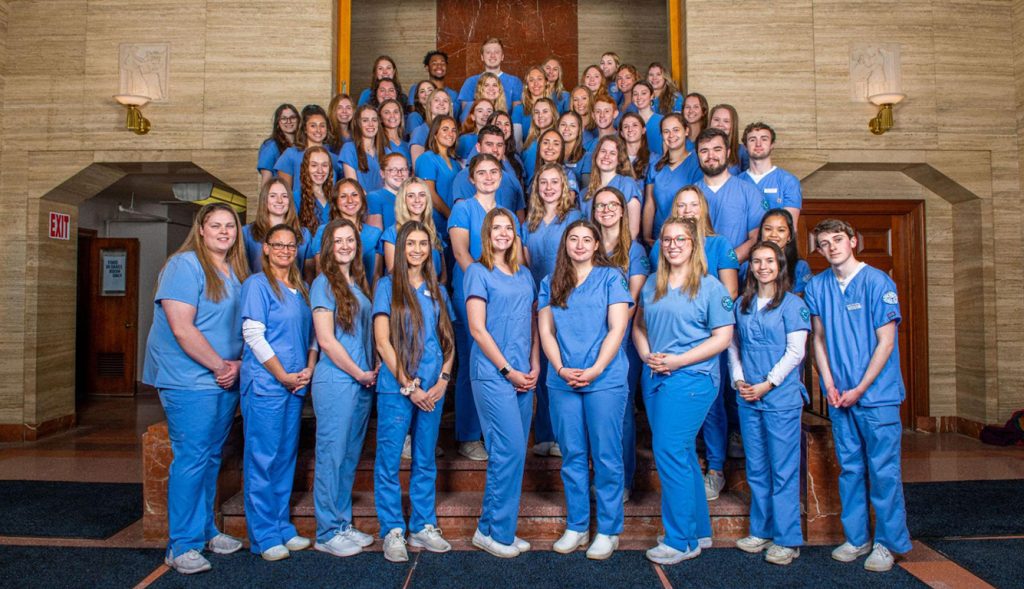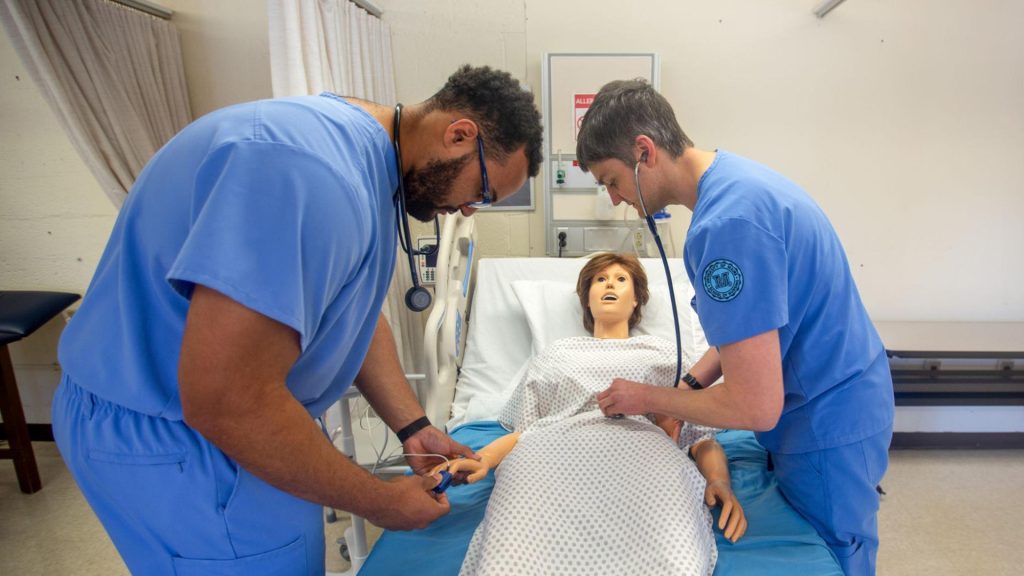Mission, Vision & Values

Mission:
In the School of Nursing we educate nurses for the future by advancing rigorous and effective academic programs, building infrastructure to engage faculty and students in nursing scholarship, and strengthening reciprocal partnerships with our global, state, local, and university communities in the pursuit of a diverse and resilient nursing workforce. We do this by:
Leading excellence in nursing education and research by humanizing healthcare to prepare the nursing workforce through collaboration and partnership.
Responding proactively to the needs of the nursing profession with grace and humility to educate the future of nursing.
Vision:
Cultivate a courageous, inclusive community of professionals that lead excellence in education, research, and public service.
Values:
The core of our values is courage which is the practice of showing up, fully engaging, and being seen during times of uncertainty, risk, and emotional exposure. Creating a courageous culture fosters our other values of:
UMaine SON is teaching the next generation of nurses with a focus on empathy and a commitment on inclusivity, fostering an environment of belonging.
What is DEI?
In order to support a generation of inclusive leaders and effective patient advocates, the American Association of Colleges of Nurses (AACN) identified diversity, equity, and inclusion as core concepts threaded through the training of undergraduate and graduate learners. Diversity, Equity, and Inclusion (DEI) are three interrelated core principles guiding nurses toward social justice in health.
The American Nurses Association Code of Ethics details the non-negotiable values and commitments that guide the Nursing profession and the education of future nurses. Provision 8 of the ANA Code asserts that “the profession of nursing through its professional organizations must articulate nursing values… and integrate principles of social justice into nursing and health policy” (ANA 2015, p. 35). The ANA Code obligates nurses to “respect the inherent dignity, worth, and unique attributes of every person” and “advance health and human rights and reduce health disparities. As such, the UMaine School of Nursing is committed to upholding these values and integrating social justice into every aspect of teaching, learning, research, service and clinical practice.


